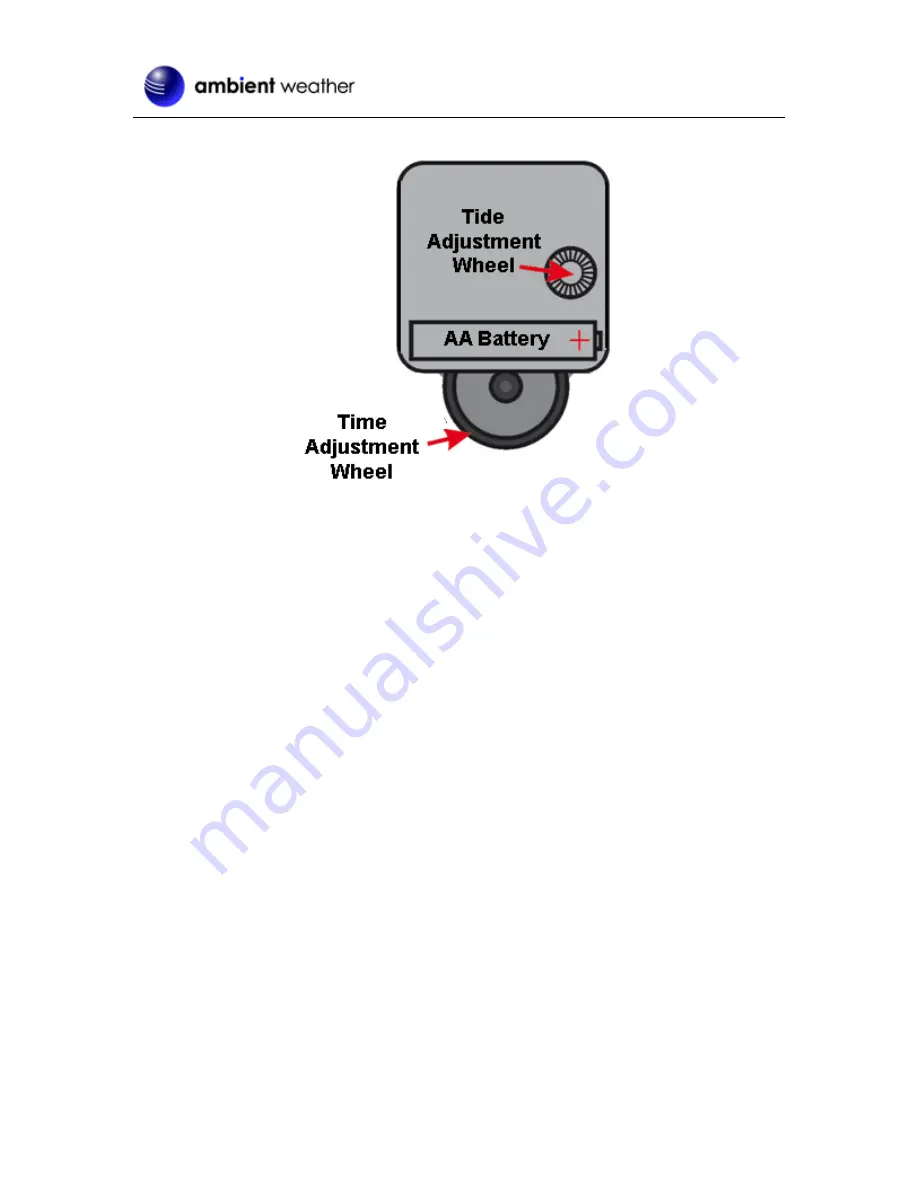
Version 1.0
©Copyright 2017, Ambient LLC. All Rights Reserved.
Page 3
Figure 2
2.
Fix the mounting plaque to a wall with a wall mounting hook or nail.
5.
Setting the Time and Tide Clock
To set the time, adjust the tide adjustment wheel in the clockwise direction, as shown in Figure
2. To set the tide, adjust the tide adjustment wheel in the clockwise direction, as shown in Figure
2.
NOTE
: It is normal for the tide hand to have some “play”. This allows for proper rotation of the hand.
You may have to iterate to set properly.
6.
Tide Clock Limitations
6.1
Location
Tide fluctuations (high and low tide) vary from one location to another. The tide hand therefore will
indicate high and low tide at your specific location only. High and low tides have a fluctuation
rhythm between 12 and 13 hours. Therefore, the tide indicator will show average values only, which
for general requirements will be sufficient.
Other variables such as wind, atmospheric pressure, the relative position of the moon, and the
elliptical pattern of the sun will affect the tide slightly. These variables least affect the tide at the time
of the full moon. For this reason, the time of the full moon and to a lesser extent, the new moon are
generally the best times to set your tide clock. Even though you may experience some slight
variations during the days to come, you will find that they will “average out” and by the time of the
next full moon, your tide clock will accurately depict the correct time of flood and ebb stages.
























